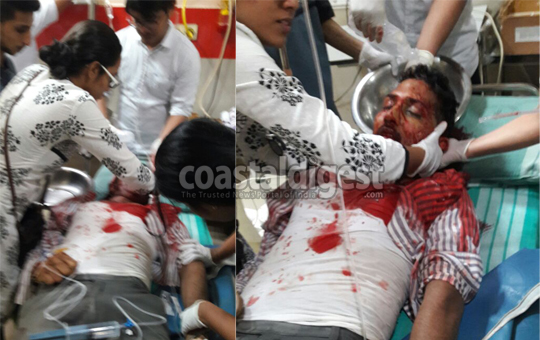Bantwal, Jul 5: The stabbing spree has continued in communally sensitive Bantwal Taluk. On Tuesday night a gang of unidentified miscreants stabbed a youth at B C Road.

The victim has been identified as Sharath, a resident of Kandur in Sajipamunnur.
Sharath runs a laundry service by name 'Udaya' near BC Road flyover. The incident occurred around 9.30 p.m. when he was about to leave for home. Miscreants who arrived in a bike stabbed Sharath and fled the spot.
He was immediately admitted to a private hospital in Thumbey and later shifted to another hospital in Mangaluru. The condition of the victim is said to be critical. A few media report claimed that he was an RSS worker.
Sudheer Kumar Reddy, Superintendent of Police, DK, rushed to the spot. Police registered a case and launched a manhunt for the accused.
The stabbing that occurred in spite of the imposition of the prohibitory orders under Section 144 of CrPC has triggered fresh tensions in the taluk which witnessed several untoward incidents in past one and a half month.





Comments
Unecessary attaching innocents, its cowards doing this , they attach innocents,
ALLAH ALMIGHTY WILL DO JUSTIC
ALLAH ALMIGHTY will do the justice , no need to worry
truth will prevail and evil will perish soon
hope cop is not from RSS terrorist group?? By the way, where is Khader and Bava they will appear when everything got over with political dialogue and until today nothing they did for their community in spite of having the power in hand? Now the time to show the heropanthi
Hope this is sufficient for cop to take action
Congratulations Ifti Saab,
Allaha Bless you
Parents, siblings, spouse, children, relatives lost their loved one and RSS targeted innocent lives. Sad indeed. All participating like victory...
Add new comment